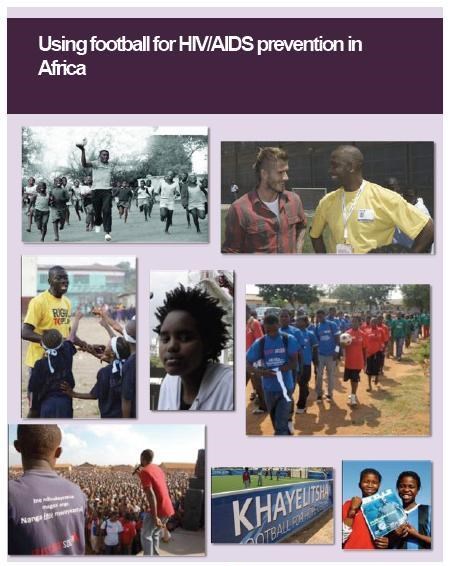New report recognises the power of football in HIV/AIDS prevention

A new report "Using football for HIV/AIDS prevention in Africa" from Coxswain Social Investment.
12.08.2010
By Play the GameThe question for the researchers was, “Football has tremendous convening power, but do football‐based programs really make a difference in preventing HIV?” According to the study, the answer is unequivocally ‐ yes.
Streetfootballworld reports that the study, conducted by Coxswain Social Investment in the months running up to the World Cup, includes the work of many of streetfootballworld’s network members and hightlights how the work they are doing significantly helps the fight against HIV/AIDS in communities across Africa.
The study shows that the football-based programmes can lead to a great change in behavior, which is the key to HIV and AIDS prevention.
It also highlights that football programmes are successful with audiences that are hard to reach with traditional campaigns and at tackling sensitive issues within the safety of the team. And as football appeals to young audiences, these programmes are reaching those at most risk.
You can download the report as a PDF here





